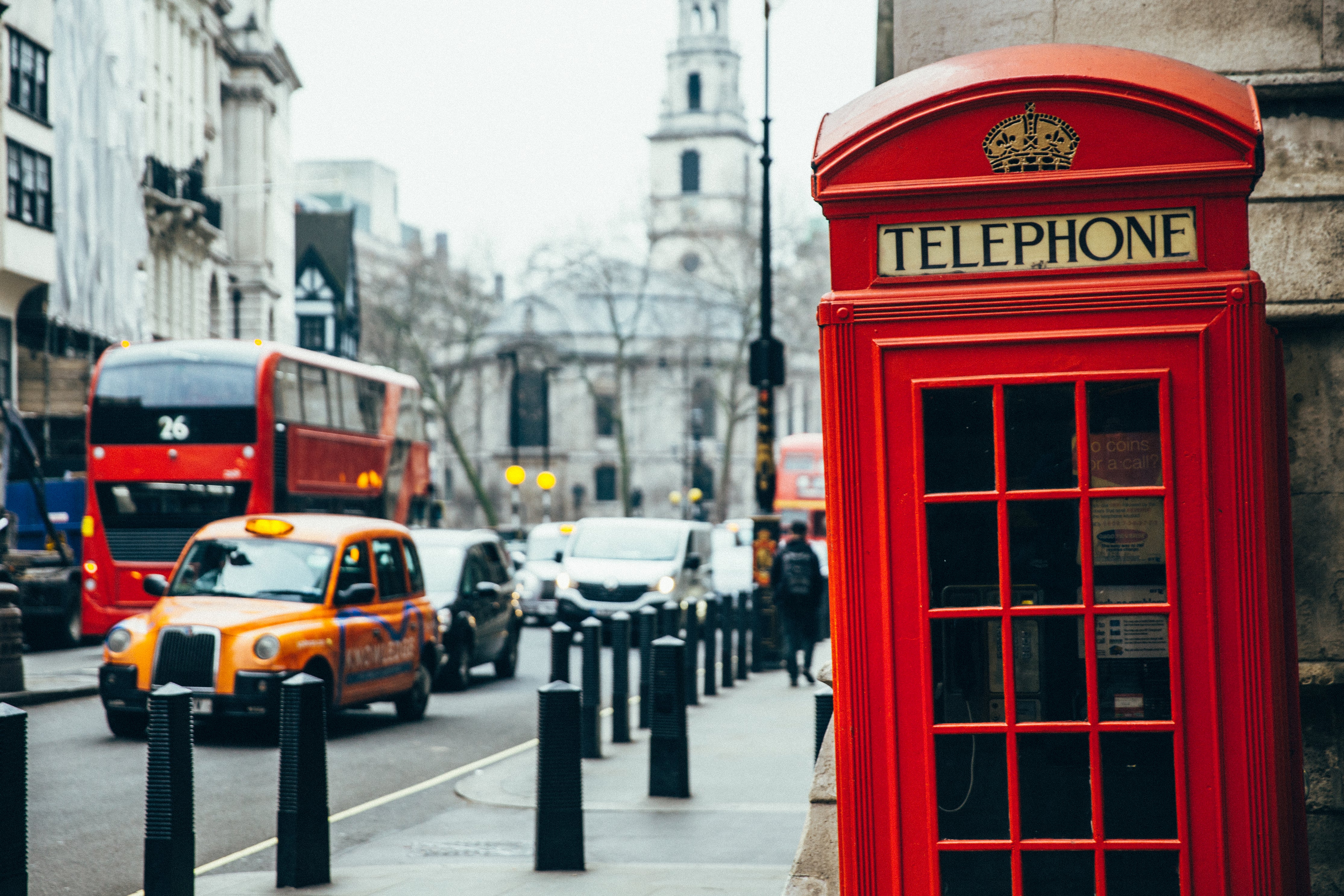Learning British slang isn’t just about picking up a few cool words – it’s about truly diving into life in the UK. Slang is everywhere in everyday conversations, and understanding it helps you connect with people and get a deeper feel for British culture. Imagine this: you’re trying to make new friends, and a well-timed slang word or phrase can instantly make you feel like part of the group. It’s like a secret code that makes you fit right in. Moreover, British slang makes conversations more fun, more relaxed, and a whole lot less stiff than the formal English you might have learned in class. These quirky expressions help you vibe with your peers, feel confident chatting in social settings and even strike up a more casual, friendly conversation with your professors. In this post, we’ll go through some of the most useful British slang, from classic phrases to hilarious idioms and even money slang – everything you need to sound like a true local. Don’t worry, as we’ve also got some handy tips to help you pick up these terms and start using them straight away. So whether you’re about to start your studies in the UK or you’re just visiting for a short time, mastering British slang will make your experience smoother. You’ll understand the jokes, navigate social situations with ease, and avoid those awkward moments that happen when cultural differences get in the way. Ready to start speaking like a Brit? Let’s dive into the list of slang words and phrases every student should know!
British Slang Words and Phrases You Should Know
British slang has a ton of different words and phrases, varied by region; maybe what you hear in Leiceshire is totally different from what you hear in Yorkshire, even the different cities and towns. Here, we’ve compiled the most important slang terms in common, including UK slang for students, popular British slang phrases, funny words, and even some money-related slang to get you started.
Best UK Slang Words for Students: A-Z
British slang words are used in regular life, so for students, knowing a few keywords can help you join conversations more naturally. That’s why we give you this: Top 30 British slang words A-Z list you should get to know:
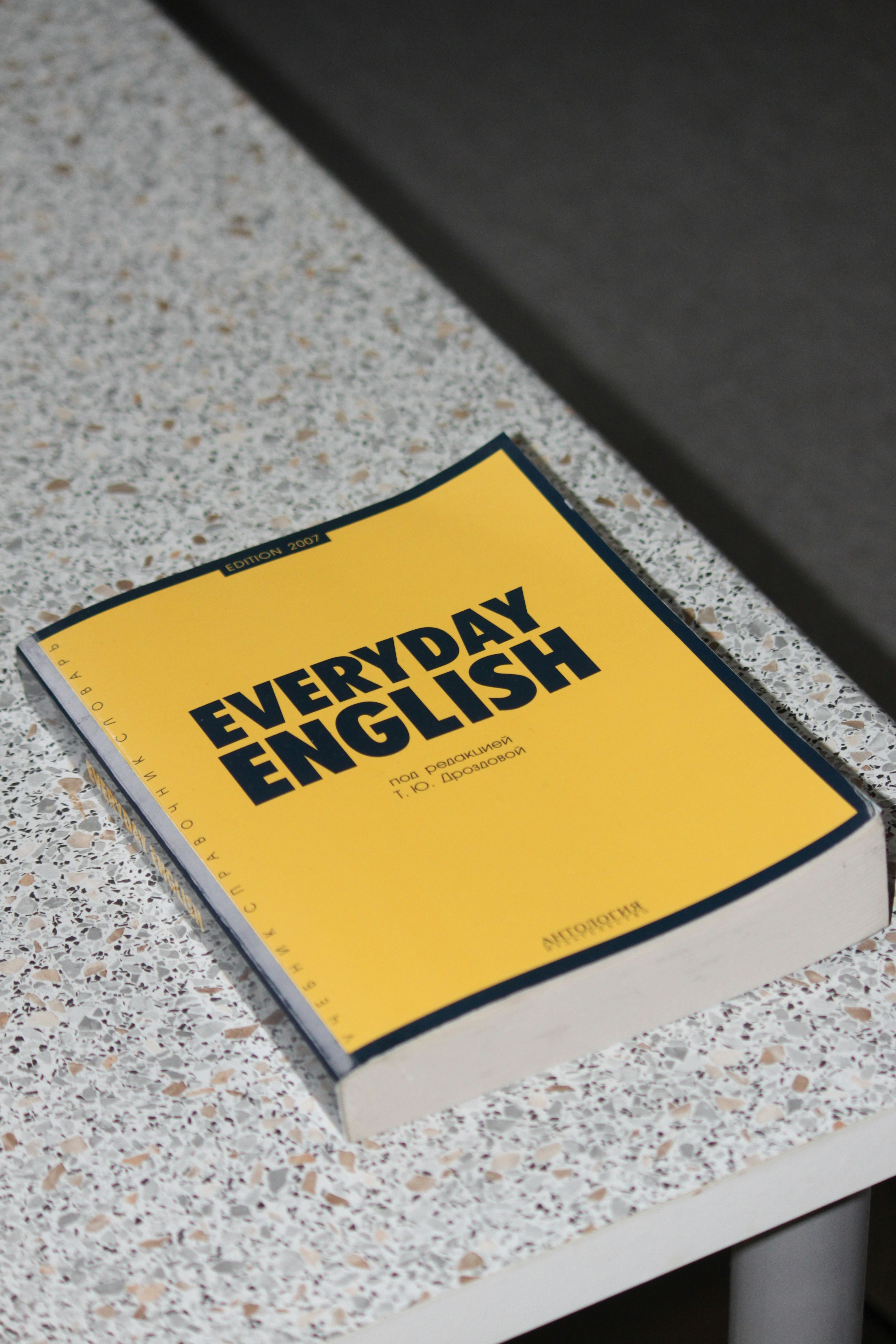
1. Ace
When something is “ace,” it means it’s great or excellent. It’s a super positive term that can be used to describe anything that stands out in a good way.
Example: “That exam was ace!”
2. Bloke
“Bloke” is the British slang term for a man. It’s casual and friendly, often used to refer to someone in a laid-back or informal way.
Example: “He’s a proper nice bloke.”
3. Brolly
A “brolly” is just a playful way to say “umbrella” in the UK. It’s a common term used when referring to something you carry to protect yourself from the rain.
Example: “Grab your brolly; it’s pouring!”
4. Chuffed
When you’re “chuffed,” you’re happy or pleased, especially about an achievement. It’s often used to express pride or contentment.
Example: “I’m chuffed I passed!”
5. Cheeky
“Cheeky” means being playfully bold or slightly mischievous but in a fun and lighthearted way. It’s often used to describe a small indulgence, like a treat.
Example: “Fancy a cheeky pint?”
6. Dodgy
If something’s “dodgy,” it’s suspicious or unreliable. It could refer to anything from a person to a situation that feels a bit off or unsafe.
Example: “That Wi-Fi’s dodgy.”
7. Dosh
“Dosh” is a slang term for money. It’s a playful, casual way to refer to cash in the UK.
Example: “I’m out of dosh.”
8. Easy peasy
“Easy peasy” means something that is very simple or straightforward, often with a hint of lightheartedness. It’s used to describe tasks that are so easy they almost require no effort at all.
Example: “The homework’s easy peasy.”
9. Fag
In the UK, “fag” refers to a cigarette, and it’s not offensive here, though it can be elsewhere. It’s just a casual term for a smoke.
Example: “He’s outside for a fag.”
10. Gobsmacked
If you’re “gobsmacked,” you’re utterly shocked, amazed, or surprised – whether it’s from something really positive or completely unexpected.
Example: “I’m gobsmacked. We won!”
11. Gutted
When someone’s “gutted,” they’re devastated or deeply disappointed, usually because of something that didn’t go as planned or was a major letdown.
Example: “I’m gutted they canceled the gig.”
12. Grub
“Grub” is a fun British slang word for food, and it comes from an old English word meaning “dig.” It’s a casual way to refer to something to eat, often used when talking about a meal or snacks.
Example: “What’s for grub tonight?”
13. Hobnob
“Hobnob” can refer to a fancy biscuit (cookie) in the UK, but it can also be used as a verb meaning to socialize or network, especially in a casual setting.
Example: “Want a hobnob with your tea?”
14. Hammered
– is the slang word used to describe someone who is very drunk. If you want to say someone is a bit drunk, you can say it as tipsy.
Example: “They are totally hammered after a club night”
15. Innit
– Tag question for “isn’t it?”
Example: “Cold today, innit?”
16. Jammy
If you’re “jammy,” you’re incredibly lucky, often in a way that feels a bit like you’ve just stumbled upon good fortune. The origin of this term is debated, but it’s believed to have evolved from “jammy dodger,” a term for a lucky biscuit, which then came to mean anything or anyone fortunate.
Example: “You’re so jammy—you guessed the answer!”
17. Knackered
When you’re “knackered,” you’re absolutely worn out or exhausted – more than just tired, you’re completely drained. The term is thought to come from the process of “knacking” old horses in the 19th century when the horses were put out of action and could no longer work. Now, it’s used to describe extreme fatigue.
Example: “I’m knackered after rugby.”
18. Leg it
To “leg it” means to run away quickly, usually in a bit of a panic or hurry. This phrase likely comes from the idea of running so fast you might as well be using your legs to their full capacity, often in a desperate escape. It’s been around since the early 20th century and remains popular in everyday speech.
Example: “Leg it before the teacher comes!”
19. Lets
The British slang word means housing, property, or room, and the term student lets in the UK means student accommodation in the UK.
20. Minted
If someone’s “minted,” it means they’re loaded with cash, or in simpler terms, they’re rich. This slang term likely comes from the idea of a mint, where coins are produced – if you’re minted, you’re as good as having a lot of money.
Example: “Their family’s minted.”
21.Miffed
When you’re “miffed,” you’re not just a little annoyed – you’re genuinely irritated or upset but in a more subtle, less intense way. The origin of this term isn’t clear, but it’s believed to have evolved from the idea of being in a mild state of displeasure.
Example: “She’s miffed about the grade.”
22. Naff
If something’s “naff,” it’s not just uncool – it’s downright tacky, cringeworthy, or just lacking style. The origin of this one is debated, but it may have started in the 1970s, possibly derived from the expression “naff off,” which means “go away,” implying something is unwanted.
Example: “Those shoes are naff.”
23. Pants
When something’s “pants,” it means it’s rubbish or completely terrible – not just a bit disappointing. This term was likely first used in the UK to refer to something that was subpar or disappointing, much like how we’d associate pants with the least exciting part of an outfit.
Example: “This movie is pants.”
24. Quid
“Quid” is a slang term for British pounds (£) – basically, money. The origin of the word isn’t certain, but it’s thought to come from the Latin word “quid pro quo,” meaning “something for something,” as a way to refer to exchange or value.
Example: “It costs ten quid.”
25. Rubbish
When someone says something is “rubbish,” they’re calling it complete nonsense or something that’s worthless. Originally, “rubbish” referred to trash or refuse, and over time, the term evolved to describe anything that was of poor quality or untrue.
Example: “That’s total rubbish!”
26. Skint
Being “skint” means you’ve got no money – you’re broke. This term likely originated from “skin,” which was an old term for money in the UK, and over time, it came to describe someone with little or nothing left in their pocket.
Example: “Can’t go out—I’m skint.”
27. Sorted
If something’s “sorted,” it’s well-organized, arranged, or taken care of – like having everything in place. The term came into wider use in the UK in the late 20th century, where it was associated with getting everything neatly organized and under control.
Example: “Got my visa sorted!”
28. Telly
In the UK, “telly” is just a casual, affectionate term for television. It’s a shortening of “television,” and it’s been in common use since the mid-20th century when the TV started becoming a central part of British homes.
Example: “What’s on telly tonight?”
29. Wazzock
A “wazzock” is someone who’s acting like an idiot or just being a fool. The exact origins are unclear, but it’s thought to be a playful, mildly offensive term that’s been used since the 1960s to poke fun at someone who’s being daft.
Example: “Don’t be a wazzock—revise!”
30. Yonks
When you haven’t seen someone in “yonks,” it means it’s been ages, a really long time. This term likely originated from the 1940s British military slang, where it was used to describe a long period of time, possibly derived from the word “Yonker,” which means a long stretch.
Example: “Haven’t seen you in yonks!”
Popular British Slang Phrases
If you feel it difficult to ass these British slang words in sentences to express your true feeling, check out our popular British slang phrases to help you shorter you’re talking super!
1. Cup of tea
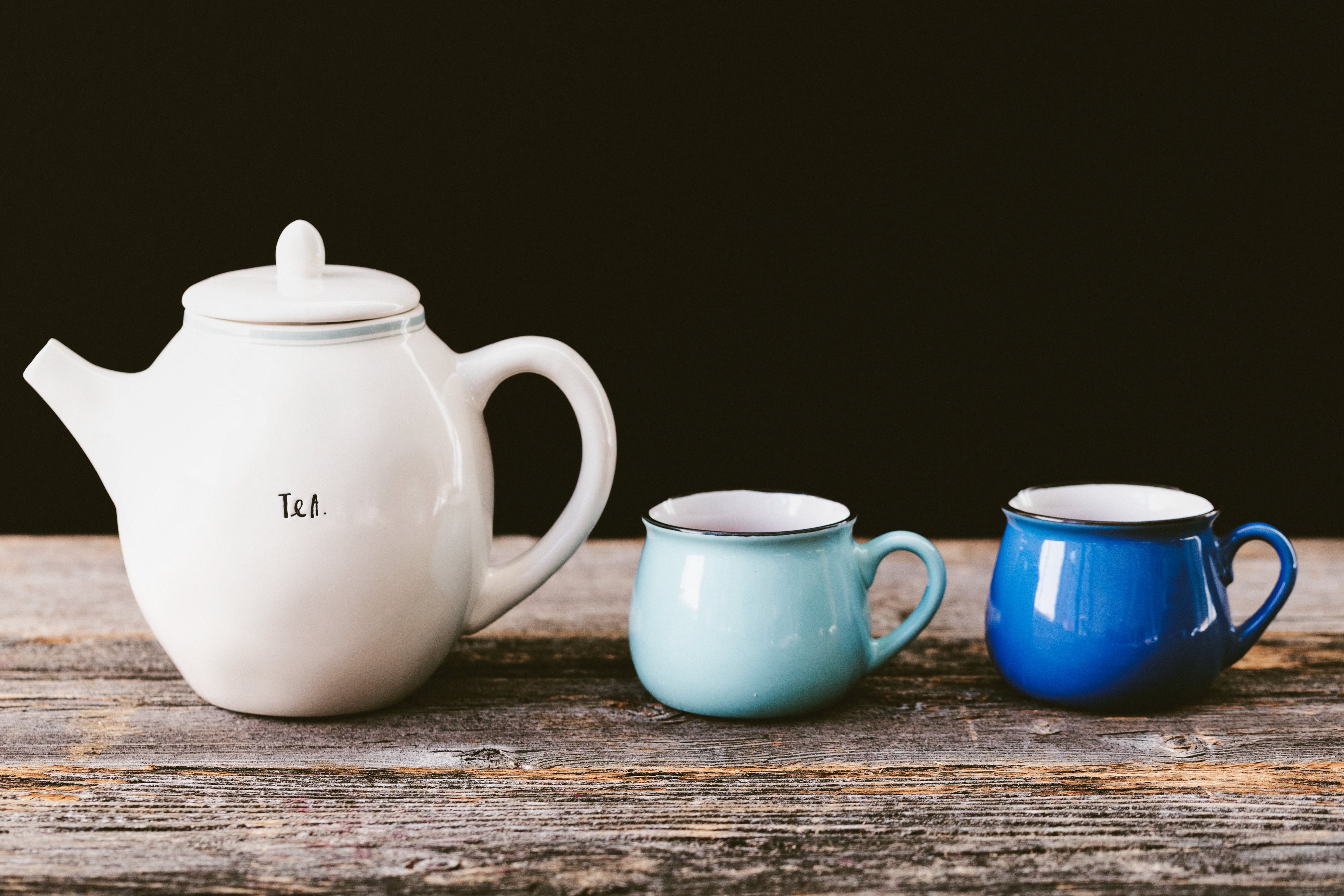
– This British slang phrase is super popular and common when you would like to express something or someone you enjoy or like.
2. Chuffed to bits
– You’ll use this when you’re feeling extremely happy or delighted about something. You might say it when you’ve aced a test or nailed that presentation!
3. Pull your socks up
– You’ll hear this when you need to improve your performance or make more effort, especially if you’re slacking off or not doing your best in class.
4. A penny for your thoughts
– If someone’s been quiet, you can ask them this to find out what’s on their mind. It’s a great way to get someone talking when they seem lost in thought.
5. Speak of the devil
– You’ll use this phrase when someone unexpectedly appears just as you were talking about them. It’s a fun way to point out the coincidence!
6. In a pickle
– You’ll use this when you find yourself in a tricky or difficult situation. Whether it’s missing a deadline or getting caught in a last-minute problem, this phrase perfectly describes being stuck.
7. Bite the bullet
– When you have to face something difficult or unpleasant, like a tough exam or a challenging task, this is the phrase you’ll use to motivate yourself to get it over with.
8. It costs an arm and a leg
– You’ll definitely use this when something is ridiculously expensive, like those pricey textbooks or an extravagant night out.
9. Under the weather
– When you’re not feeling well, maybe after staying up late studying or partying, this is the phrase you’ll use to say you’re a bit sick or unwell.
10. Give us a bell
– If you want to catch up with someone or make plans, this phrase is perfect for telling someone to call you. It’s a friendly way to say, “Give me a ring.”
11. Full of beans
– When you’re feeling energetic, lively, and ready to take on the world (maybe after a good night’s sleep), this phrase is just what you’ll say to show your energy!
12. As fit as a fiddle
– If you’re feeling in great health and full of energy, you’ll use this phrase. It’s perfect for when you’re feeling strong and ready to tackle anything.
13. Bob’s your uncle
– After sorting something out or making things easy, you’ll say this to tell someone everything’s taken care of or that it was easier than expected.
14. Fingers crossed
– When you’re hoping for something good to happen, like waiting for exam results or hoping your plans work out, this is the phrase you’ll use to express your hopes.
15. Take the mick
– If you’re joking or teasing someone (in a light-hearted, friendly way), you’ll use this phrase to show that you’re not serious.
16. On the pull
– If you’re looking for a romantic partner or just flirting around, this is the phrase you might use to describe what you’re up to at a party or night out.
17. Off your trolley
– When someone is acting a little crazy or not thinking straight, you’ll say this to describe their wild behavior or wacky ideas.
18. Veg out
– You’ll use this phrase when you decide to relax and do absolutely nothing for a while. Maybe you’re binge-watching Netflix or just chilling in your room for the day.
19. Throw a spanner in the works
– You are likely to hear this saying when something goes wrong or someone makes a mistake.
20. Throw a wobbly
– You’ll use this phrase when someone suddenly gets really upset or throws a tantrum, often over something small. Like when your flatmate finds out someone ate their snacks—it’s the perfect moment to say they’ve “thrown a wobbly.”
Funny British Slang Words
When you can only use “haha” or “happy” to show your humor, guess the following is what you really need in the UK. Our funny British slang words list will make your talk more lively. Of course, knowing when and how to use your humor is the best way to avoid awkwardness and break the ice in any situation! Check out our list, and start becoming the life of the party in any setting from now on. Whether you’re hanging out with friends, meeting new people, or trying to make an impression, these funny UK words will help you bring a smile to everyone around you.
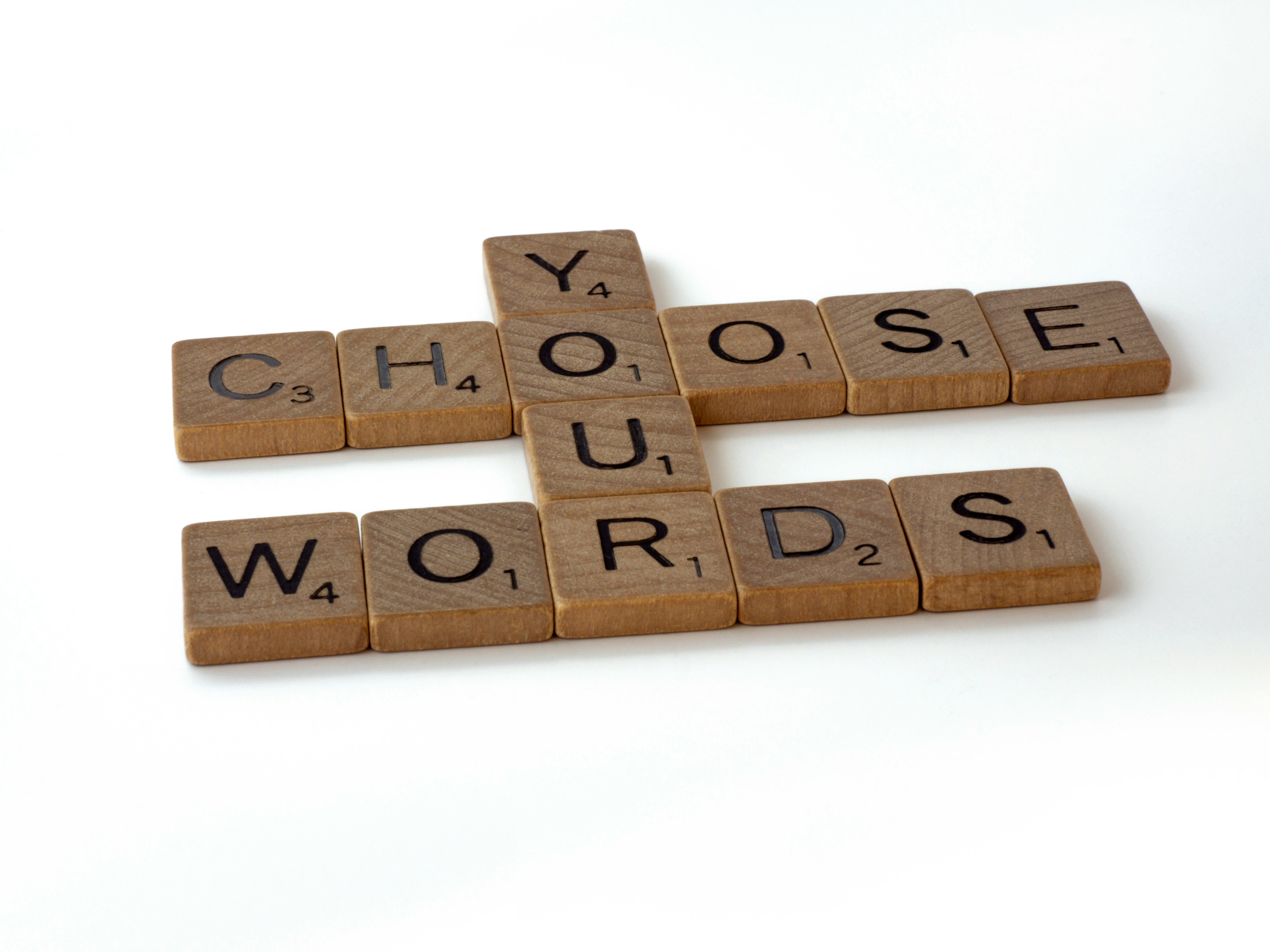
1. Blimey
This term is an exclamation of surprise or astonishment, often used when something unexpected happens. The humor comes from how exaggerated and old-fashioned it sounds. You might say “Blimey!” when you’re caught off guard, like seeing someone do something outrageous.
When to use: When you’re shocked or surprised, like seeing something unexpected happen.
2. Codswallop
Cododswalop, meaning nonsense, sounds funny because it’s a word that’s rarely used in other languages and has a quirky ring to it. It’s humorous to hear someone use this instead of just saying “nonsense.”
When to use: When someone says something unbelievable or ridiculous. Example: “That’s total codswallop!”
3. Gormless
This word means someone who looks clueless or dazed, often in a way that’s a bit endearing. The humor is in how it sounds—it’s funny to describe someone as “gormless” because it sounds a little silly.
When to use: When someone seems a bit lost or without a clue, like when a friend can’t find their phone after just holding it.
4. Plonker
A playful term to call someone foolish or silly. It’s humorous because it’s not harsh, just a lighthearted way to poke fun at someone for doing something silly.
When to use: When someone does something a bit silly, but you don’t want to be too mean about it. Example: “Don’t be such a plonker!”
5. Twee
Referring to something overly sweet or quaint, “twee” sounds funny because it describes something so excessively charming that it almost becomes comical.
When to use: When you see something ridiculously cute or charming to the point of being funny, like a very frilly dress or a hyper-polite café.
6. Zonked
Meaning extremely tired or exhausted, “zonked” adds humor by exaggerating just how tired someone is. The word itself sounds playful and gives a lighter spin on exhaustion.
When to use: When you’re incredibly tired after an intense activity. Example: “I’m completely zonked after that run.”
7. Minger
This word means an unattractive person, but it’s humorous because it’s often used lightheartedly rather than mean-spiritedly. It’s a bit harsh but in a playful, teasing way.
When to use: When joking with friends about someone looking a bit rough, but keep it lighthearted and not too harsh.
8. Barmy
“Barmy” means crazy or mad, and it’s funny because it sounds old-fashioned and whimsical. It gives a sense of humor to calling someone crazy, almost as if you’re just mildly amused.
When to use: When someone does something that’s a little crazy or eccentric. Example: “You’re barmy if you think that will work!”
9. Naff
“Naff” is used to describe something uncool or in bad taste, and it’s funny because it sounds old-fashioned and a bit silly. It’s a light, humorous way of calling something out as being uncool.
When to use: When something looks tacky or not stylish. Example: “Those shoes are naff!”
10. Kerfuffle
A “kerfuffle” is a small commotion or fuss, and it’s funny because it sounds like a big word for something not so serious. It gives humor to any small argument or disturbance.
When to use: When there’s a small, unimportant fuss. Example: “Don’t cause a kerfuffle over nothing!”
11. Pukka
“Pukka” means excellent or top-quality, and it’s funny because of its upbeat, almost exaggerated enthusiasm. It adds an extra flair to describing something good, making it sound more fun.
When to use: When something is really good or high-quality. Example: “This curry is pukka!”
12. Shambolic
This word means disorganized or messy, and it’s funny because it makes any disarray sound dramatic and exaggerated. It’s a more colorful way of saying something is chaotic.
When to use: When things are in complete disarray or chaos. Example: “The event was shambolic!”
13. Skive
“Skive” means to avoid work or school, often by pretending to be ill. The humor comes from the playful and somewhat cheeky connotation, as it sounds like a harmless rebellion.
When to use: When someone avoids responsibilities in a playful way. Example: “I’m going to skive off school today!”
14. Scouser
A “Scouser” is someone from Liverpool, and it’s funny because it’s often used to highlight the strong, distinctive Liverpool accent. The word has a humorous edge because it’s tied to regional pride and a playful rivalry.
When to use: When referring to someone from Liverpool or imitating their accent. Example: “You’re a proper Scouser, aren’t you?”
15. Wobbler
A “wobbler” refers to a tantrum or emotional outburst, and it’s funny because it sounds childish and over-the-top for a simple argument.
When to use: When someone has a dramatic emotional reaction to something minor. Example: “Stop having a wobbler!”
16. Miffed
“Miffed” means annoyed or upset, but the humor comes from how soft and non-serious it sounds compared to other more aggressive words for anger.
When to use: When someone is mildly upset, but it’s not a big deal. Example: “She’s a bit miffed about the results.”
17. Tart
A “tart” is a cheeky or flirtatious person. The humor comes from the playfulness of the word, making it sound fun rather than harsh or serious.
When to use: When someone is being flirtatious or a bit cheeky. Example: “He’s such a tart, always flirting with everyone.”
18. Guv’nor
“Guv’nor” is a term for a boss or authority figure, and it’s funny because it’s often said in a cheeky or informal tone as if addressing someone with more respect than they actually deserve.
When to use: When addressing a boss or someone in charge in a friendly or sarcastic way. Example: “Alright, Guv’nor?”
19. Donkey’s years
This phrase means a very long time, and it’s funny because it makes something feel like it’s been around forever, almost unnecessarily exaggerated.
When to use: When talking about something or someone that hasn’t been seen for a long time. Example: “Haven’t seen you in donkey’s years!”
20. Chinwag
A “chinwag” is a chat or conversation, and it’s funny because it makes an everyday conversation sound much more exciting or funny, adding a playful twist to something simple.
When to use: When you’re about to have a chat with someone, often in a relaxed or casual way. Example: “Let’s have a chinwag over coffee.”
British Money Slang Terms
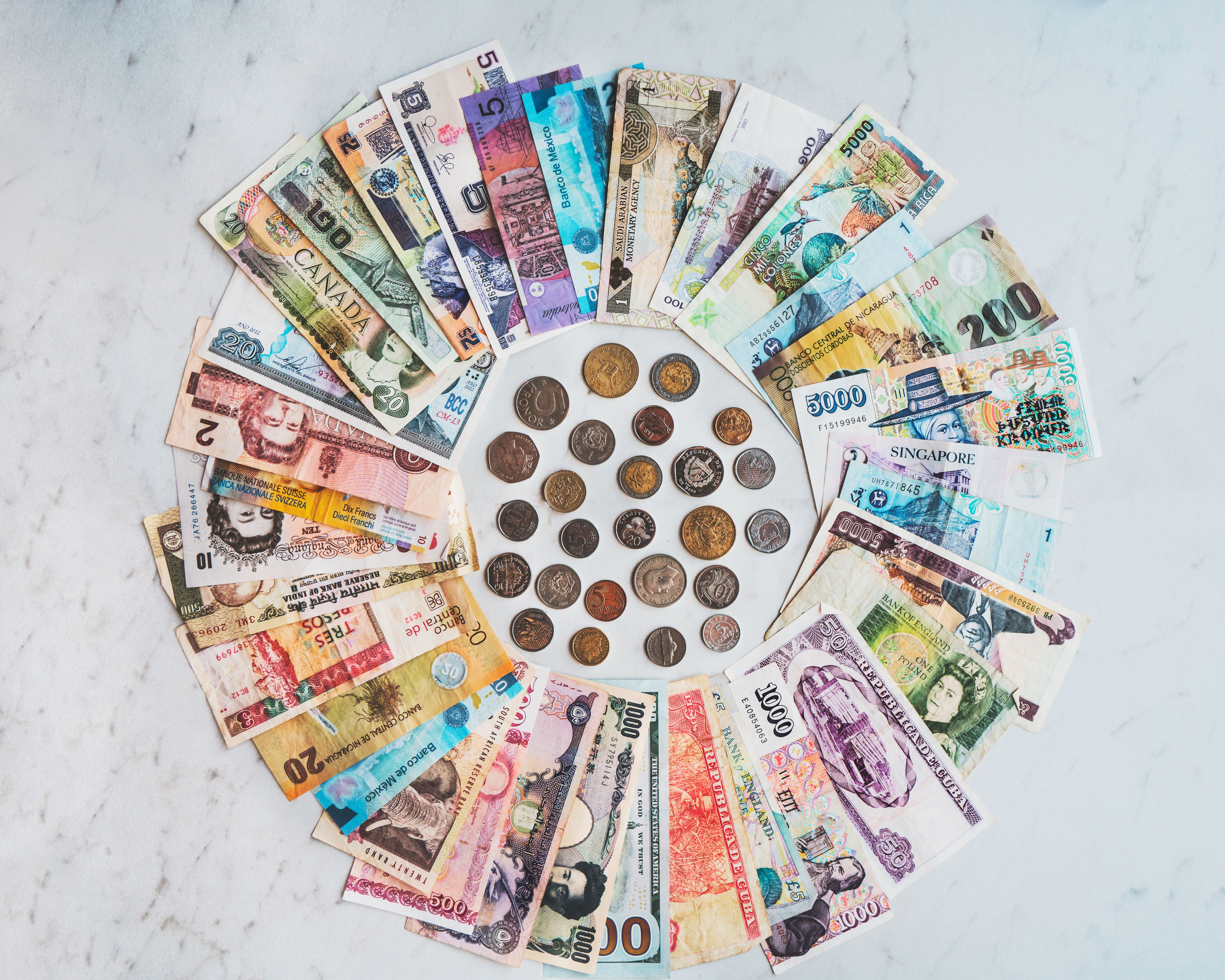
Here are some common British slang terms for money to help you feel clearer when you hear them.
1. Quid
– As a student, you’ll often use this classic British slang term for the British pound (£). It’s simple, widely understood, and a casual way to talk about money.
2. Fiver
– If you’re ever paying for something with a five-pound note, you’ll probably call it a “fiver.” It’s an easy-going and informal term that will become part of your everyday language as a student.
3. Tenner
– Much like “fiver,” but for a ten-pound note. When you’re out with friends or grabbing a quick bite, you might find yourself talking about your “tenner,” making it another casual and fun slang term.
4. Bangers and mash
– You’ll likely hear this phrase when talking about a cheap meal, specifically sausage and mashed potatoes. It’s a humorous and relatable term, especially when you’re budgeting as a student.
5. Pound
– While “pound” is the official currency, you’ll still hear it often in casual conversations. As a student, it’s an essential part of your vocabulary when talking about money.
6. Penny
– When you’re counting your small change, you’ll probably call it a “penny.” It’s a humorous and straightforward way to refer to a very small amount of money.
7. Tuppence
– This is an old-school term for two pennies, and you’ll use it when you’re feeling nostalgic or talking about something of small value. It adds a quirky twist to your conversations about money.
8. Bob
– Referring to an old shilling, “bob” has historical charm. As a student, you might smile when you hear it used, especially if you’re learning about British currency history.
9. Spondulicks
– If you’re chatting with friends about money, you might throw in “spondulicks” for fun. It’s a quirky, old-fashioned term that adds character to your conversation.
10. Dosher
– This term refers to a small amount of money. It’s a casual and humorous way to talk about having just a bit of cash in your pocket, which you’ll likely experience as a student.
11. Pence
– If you’re handling small change, you’ll often come across “pence.” It’s a straightforward term you’ll use to talk about small amounts of money in daily life.
12. Crisps
– When you’re digging through your pockets for loose change, you might refer to your change as “crisps.” It’s a fun and relatable slang term, especially if you’re counting coins after a trip to the vending machine.
13. In the red
– If you find yourself low on cash, you might say you’re “in the red.” As a student, you’re probably familiar with the feeling of budgeting carefully and keeping an eye on your bank balance.
14. In the black
– The opposite of “in the red,” this phrase describes being financially stable or having some savings. As a student, you’ll probably use it when you’re feeling optimistic about your finances.
15. Scratcher
– If you’re talking about having just a little money, you might refer to it as a “scratcher.” It’s a playful way to talk about small amounts of cash, often when you’re scraping by.
16. Dosh
– “Dosh” is an informal term for cash, and you’ll hear it all the time in casual conversations about money. As a student, you’ll probably use this slang when you’re talking about cash you’ve got in your wallet.
17. Wonga
– Another fun, informal term for cash. Whether you’re grabbing a drink or making plans with friends, “wonga” is a relaxed way to talk about your money.
18. Broke
– As a student, “broke” might be a term you use often when you’re low on funds, especially at the end of the month. It’s a common phrase that many students can relate to.
19. Loaded
– When you’re talking about someone who’s very wealthy, you might say they’re “loaded.” It’s a fun, aspirational term, especially when you’re daydreaming about being flush with cash.
20. On the dole
– This term refers to receiving unemployment benefits. While not every student will experience this, it’s part of the UK money slang vocabulary and can be useful to know.
How to Learn British Slang

Eager to dive into British slang culture and want to learn, learning British colloquialisms in a fun and rewarding way? It is super simple if you melt the learning during your life, as British slang is also a local language coming from native life, so you can do this by living in native student areas and commuting more with local people, hearing more music, watching British TV shows, movies or exploring more social media. The last step is always more practice, which makes better perfect.
- 1. Listen
Before you visit, you can pick up British slang by listening to podcasts, radio shows, or even social media content created by British influencers. For example, you might hear someone casually say, “This pub is well dodgy, let’s go somewhere else,” meaning the pub is suspicious or unreliable. Listening will teach you the proper tone and usage of each phrase. When you arrive, one of the best ways to pick up British vernacular is by hearing it used naturally in everyday conversations, so you can pick student accommodation in popular local areas for better practice.
- 2. Read
If you want to truly get a feel for British slang, it’s important to expose yourself to how it’s used in writing. Reading British novels, newspapers, or blogs is useful. Publications like The Guardian or The Independent often feature colloquial language, especially in opinion pieces or features. You can also dive into British fiction, where authors like Nick Hornby or Zadie Smith often use slang to bring characters to life. By seeing how British slang fits into different contexts—whether formal or informal—you’ll gain a better understanding of when and where it’s appropriate to use certain expressions.
- 3. Watch British TV Shows and Films
British TV is a goldmine for learning slang. Shows like The Office UK, Sherlock, and Peaky Blinders not only showcase brilliant performances but also highlight authentic British slang in various contexts. You’ll hear slang terms being used in casual settings, workplace environments, and even in historical dramas. Sometimes, take a British slang glossary with you while watching these shows. For example, in Peaky Blinders, you might hear someone say, “You’re a right ponce!” (meaning you’re a bit of a fool or a show-off), and this can help you understand its context in real life.
Conclusion on British Slang
Understanding British slang is a fun and practical way to enhance your experience as a student in the UK. Not only will it help you communicate more effectively, but it will also immerse you in the local culture and make you feel more connected to the people around you. So, don’t just learn a formal language – learn British English slang and enjoy the quirks, humor, and richness it brings. With these British slang words and phrases, you’ll be ready to take on the UK and make your student life there unforgettable!
FAQ on British Slang Words and Phrases
What is a roadman slang?
Roadman slang is a British slang language commonly used by young people in the UK, and it is especially popular among teens. It originated from UK street culture and grime music, with a free, bold, and street-smart tone. Some popular roadman slang is mandem, which means a group of male friends, safe means “cool” and “alright,” and phrases such as “allow it,” which means “stop that,” “drop it,” and so on.
What British jargon is commonly used?
There are popular British slang terms you will hear all over the UK every day, such as cheers to express “thank you” or “goodbye”; fancy, which means like someone, which means proud or pleased; loo, which means bathroom; and knackered, which means super tired.
How do you express surprise instead of "wow" in British slang?
Some of the best British slang to express surprise are Blimey, Bloody hell, No Way, You What?! And Oi Oi!
How do Brits say cool?
In the British slang language, there are a lot of words to express “cool,” depending on region and age. Here are some British slang references: peng (good-looking or awesome), sick (amazing or impressive), SoundSound (reliable or cool person), Banging (really good, especially music or food), proper (very good), and wicked (very cool or great).
What is greeting slang in the UK?
You can find British slang words and phrases for greeting as, alright? Are you good? wagwan, Oi oi, safe and hiya!
What is ok in UK slang?
British might use slang, including sound, safe, cool, sorted, no worries, and right then to say ok.





